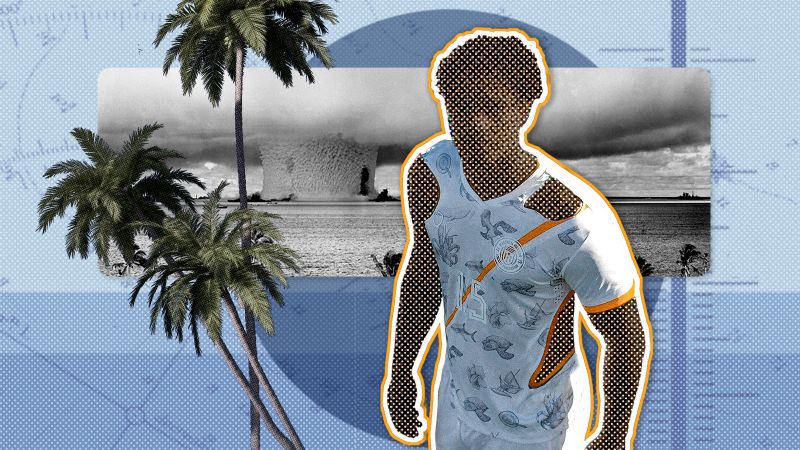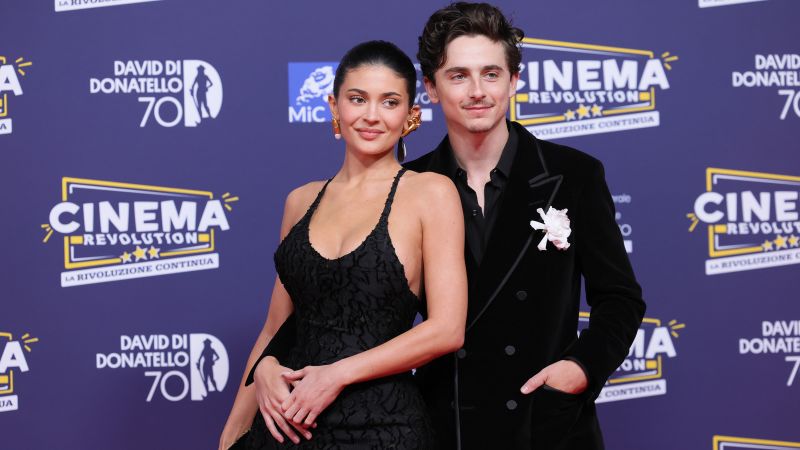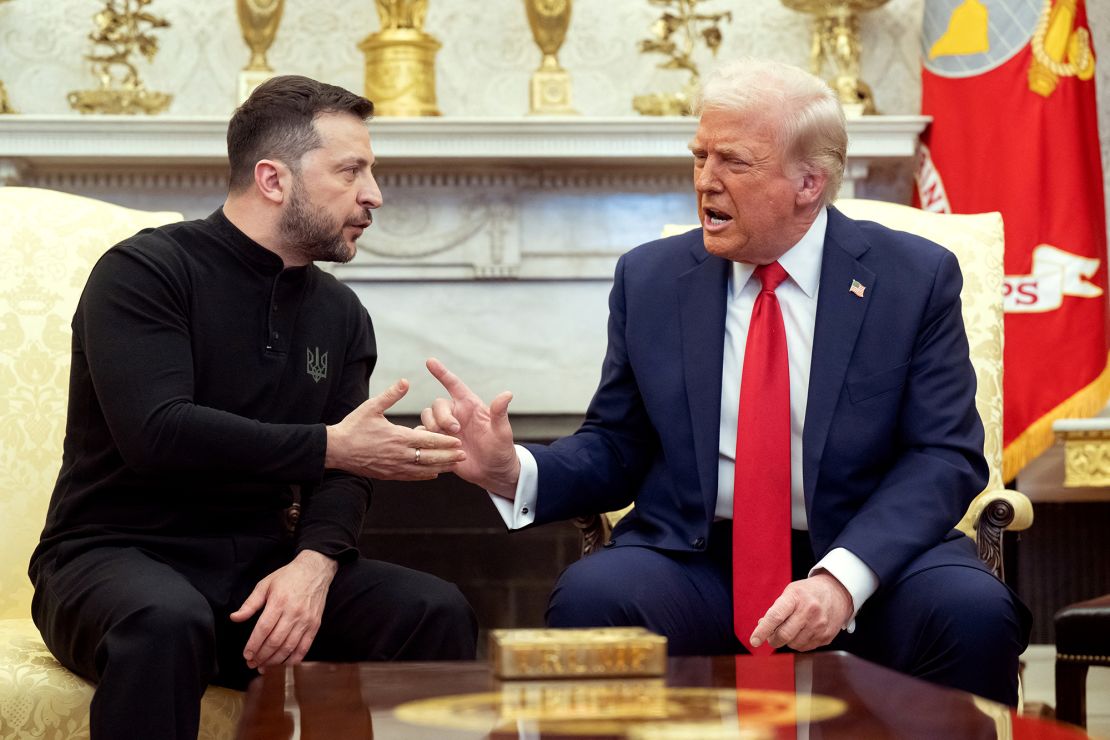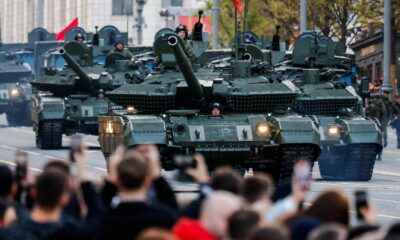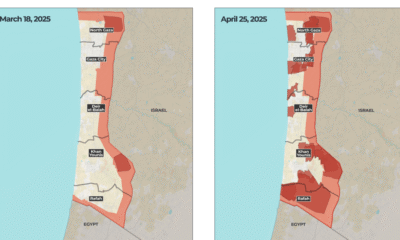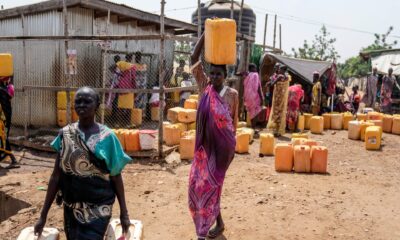CNN
—
Between rising sea levels from the climate crisis, a history of nuclear testing causing radioactive pollution and population displacement, the Marshall Islands face numerous threats.
Now, the country – made up of 29 atolls and five main islands in the North Pacific – is shining a light on the struggles it faces by turning to an unlikely source: Soccer.
The Marshall Islands are seeking to become the last of the 193 United Nations member states to have a recognized international 11-a-side soccer team, with the aim of becoming a member of FIFA – world soccer’s governing body – by 2030.
To help the cause, the nation’s soccer governing body has organized a four-team tournament taking place this summer in Springdale, Arkansas, home to the largest Marshallese community outside of the islands.
But perhaps more important than the sporting benefits of the endeavor is the opportunity to raise awareness of the environmental battle the country faces as a result of climate change.
To that end, the three British men behind the initiative – Matt Webb, Lloyd Owers and Justin Walley – have also created a new team kit. Designed with the colors of the Marshall Islands flag and emblazoned with images of the islands’ flora and fauna, the number 1.5 takes pride of place in the center of the “No-Home” shirt, a reference to the Paris climate agreement, in which countries agreed to make efforts to limit global warming to 1.5 degrees Celsius. A quote from Marshallese poet Kathy Jetnil-Kijiner is also etched onto the shirt: “We deserve to thrive.”

The message and the unique design were enough to make it a popular release. But it got even more attention when, with each photo post on social media of the new kit, parts of the shirt had disappeared; first a bit of a sleeve, next some from the midriff and then from the collar.
The gradual loss of parts of the kit was used as a stark reminder of the creeping danger that rising sea levels present to the Marshall Islands.
According to analysis by NASA, sea levels in the Marshall Islands have risen by 10 centimeters (almost 3.94 inches) over the last 30 years and could rise by 19 centimeters (roughly 7.48 inches) over the next 30 years, leading to an increase in flooding with “worsening severity.” If no measures are taken, the islands are likely to face more than 100 days of flooding yearly by the end of the century.
Webb, who works as the head of commercial for the Marshall Islands Soccer Federation, explains that while developing the soccer side was the main priority when they began their work, they are in the “fortunate position” to be able to bring attention to an issue that perhaps would fall by the wayside.
“There is an obligation to talk about aspects such as climate change, nuclear legacy. We have this kind of duty of care to mention it at least. And we decided to use the shirt as a way to it,” Webb told CNN Sports.
“It’s a celebration of a rich culture of the Marshall Islands and, potentially, what could be lost if action isn’t taken. We appreciate that climate change can be polarizing to some people and it’s maybe not something they want to focus on in sport. But for us, it would be amiss if we didn’t kind of reference it at all. And using sport as well, we’ve got such a huge platform where other outlets might not necessarily be able to touch upon that.”
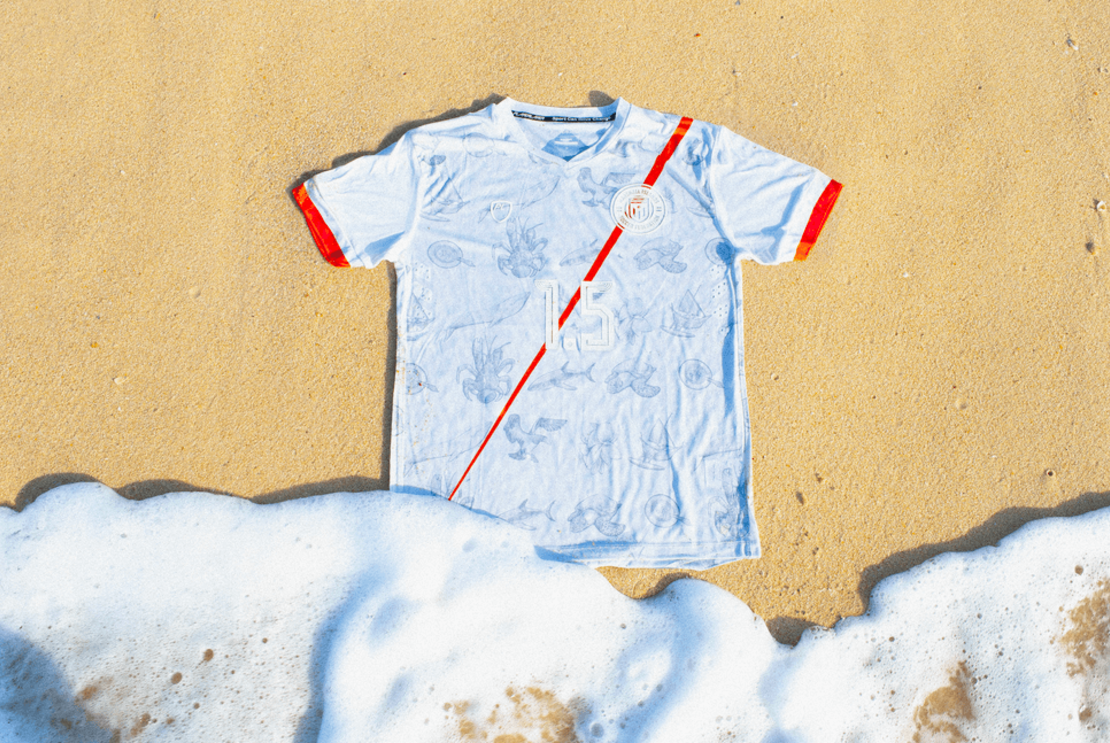
The Marshall Islands are home to around 39,000 people and are on the opposite side of the world to the United Kingdom, where Webb and Owers live. But they stumbled across the country’s sporting plight in an article in The Athletic in 2021.
The Marshall Islands Soccer Federation was founded in 2020 by President Shem Livai because his son was an avid soccer fan, but there was no structure for kids to play. Webb immediately wanted to be involved.
Webb and Owers both have experience in the Beautiful Game prior to this endeavor. Webb’s day job is in marketing but he has previously been involved in soccer administration and founding clubs, while Owers has previously worked as a coach and helped in forming coaching programs for teams in the UK and abroad.
Webb recalls finding Livai on social media and eventually his email before “peppering” him with messages offering his services as a volunteer until Livai, as the Brit recounts, “relented.” Owers was introduced by a mutual connection after which he was appointed technical director and the pair set about revamping the federation.
Webb admits that they faced some skepticism from locals in the early months – “‘What are you doing? You’re saying you’re Marshall Islands Soccer Federation, but you’re doing this from the UK,’” he remembers being asked – but have since developed relationships and connections to establish their credibility as keen volunteers.
While soccer is known as the global game, that is not the case on the Marshall Islands. Given its longstanding connections to the US – the republic is home to the US Army Garrison Kwajalein, which helps in ballistic missile testing and tracking – basketball and volleyball are the most popular sports there.
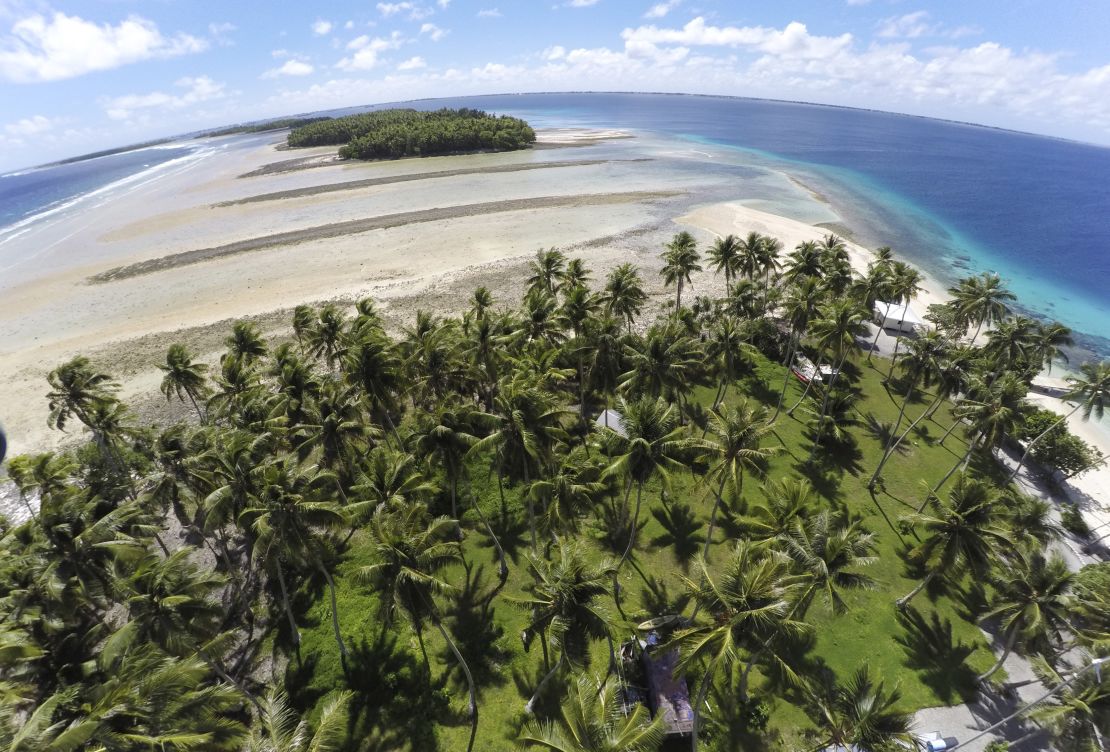
While many of the youngsters on the island may be fans of soccer, Webb explains, the lack of accessibility to adequate facilities and coaching means few play it regularly.
Webb and Owers set about using futsal – a scaled-down version of regular soccer played with five players on each team and on smaller pitches – to increase playing time, using the abundance of basketball courts as venues.
But, due to the geographic make-up of the islands, space is at a premium when it comes to full-size 11-a-side pitches, which FIFA recommends have the dimensions of 105 meters (almost 344.5 feet) x 68 meters (almost 223.1 feet).
“It’s a very low-lying island nation, which is built on top of essentially a coral reef. And when you’re there, you can kind of really feel how close you are and how much your islands are related to the oceans,” Webb explains.
“You’ve got oceans on one side, and it’s basically a circular lagoon on the inside as well. So there’s points on your island where it’s just one road separating the ocean to the lagoon. You feel really exposed at times.”
The country did build a stadium for the Micronesian Games last summer, which gives the islands a useable pitch, but it still has no goals even now. They have focused on acquiring equipment, creating opportunities to play and providing coaches for the Marshallese people to get a taste of what the Beautiful Game can bring.
While they are hoping that this next generation of soccer-mad youngsters will provide the bedrock for a blossoming Marshall Islands national team, their current crop of players is made up of young adults and expatriates from surrounding islands, such as Solomon Islands, Fiji and Kiribati.
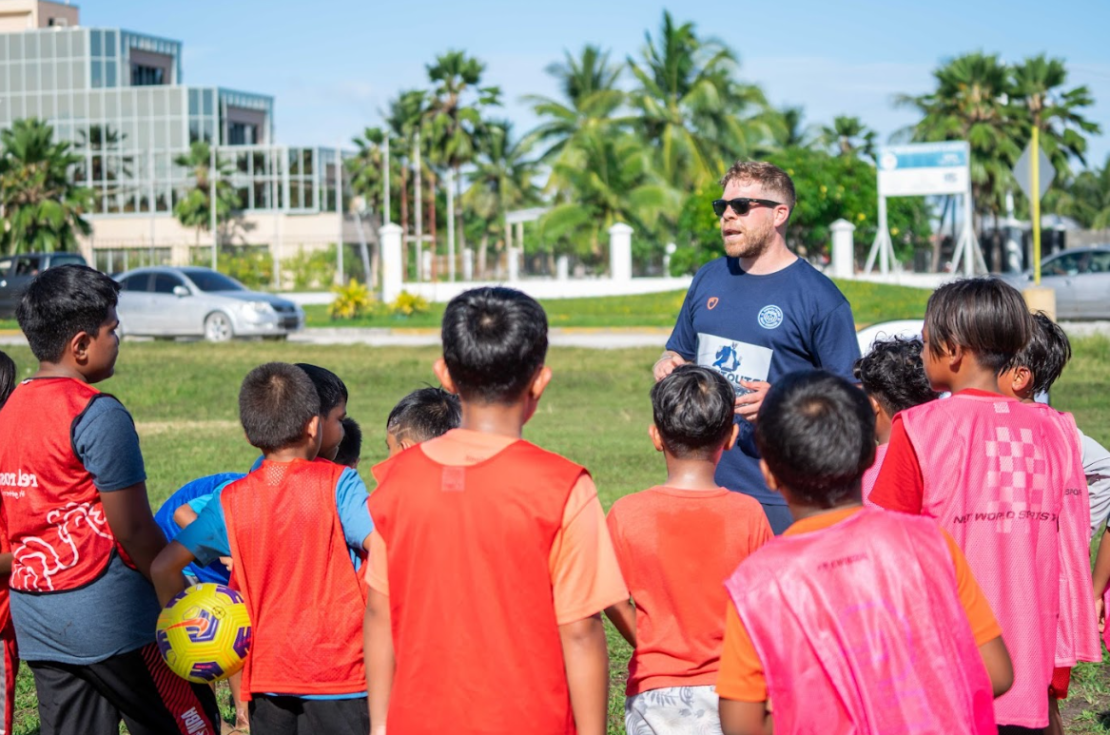
With the help of on-island coaches, the British volunteers were able to build a soccer system across the islands. They have seen buy-in across the generations as their reputations have grown.
On top of the sporting benefits have been the human impact, which Webb describes as arguably the more “rewarding” part of what they’re doing.
On Owers’ most recent trip to the Marshall Islands, he led a group from the island of Majuro – the country’s capital – to the island of Kwajalein. He was told by one of his players: “This is the best weekend of my life.”
Webb explains: “We can take it for granted, the ability to move freely between places, but for some of these lads, it’s the first time off island or traveling by plane and seeing new things and meeting new people. So there’s that kind of personal impact you’re having on people’s lives.”
Both Webb and Owers are unequivocal in their aim of having the Marshall Islands being involved in the qualification process for a FIFA World Cup. But to do that, there are certain criteria they must meet to be able to join a regional confederation.
The first step on that journey is the four-team tournament in August in Arkansas, their first 11-a-side matches against other international teams.
The “Outrigger Cup” will see the Marshall Islands face the US Virgin Islands, the Turks and Caicos Islands, and Guam, all three of which are FIFA member nations.
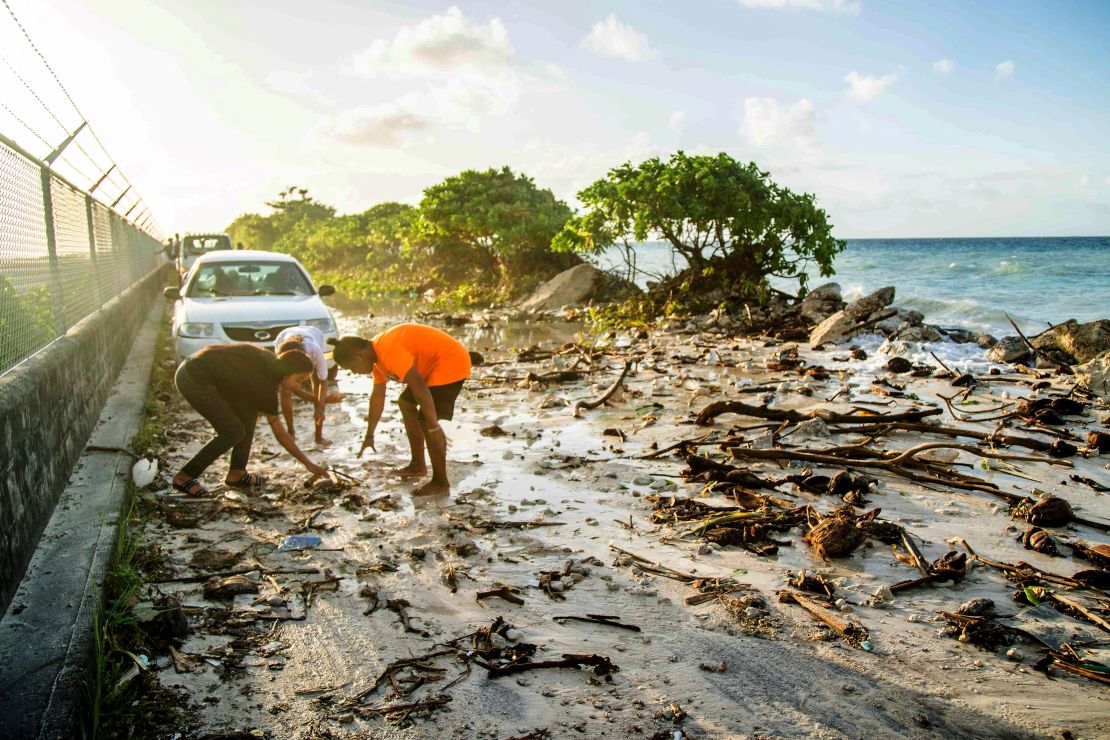
They have started a fundraiser for the tournament, which they see as an opportunity to bring Marshallese people together.
“We want to be in a position to allow every Marshallese person the opportunity to be a part of our project regardless of where they are in the world,” Owers said. “Uniting everyone in a different place is another opportunity for us to do that.
“I think, as a byproduct of it, hopefully this then propels the project into something where we’re in front of those confederations that we’ve applied for. They’ve got more awareness of what we’re doing, and seeing the journey and the development of where we were, where we’ve gone, and then where we want to be, and hopefully using this as a bit of a platform to push on from that.”
Webb reveals that they also have plans in future editions of the kit to address the nuclear legacy of the Marshall Islands; the US government conducted 67 nuclear tests there between 1946 and 1958 which “left communities displaced and contributed to radioactive land and sea pollution,” per the UN.
He talks about how much the islanders value community, which too is under threat, as more families emigrate to the US to avoid the impacts of climate change. But Webb believes soccer can help bring the Marshallese together.
“We want to unite people through a medium of sport, and hopefully raise awareness to those issues that people face on daily basis. If we can have any small part in helping that, then we will.”

